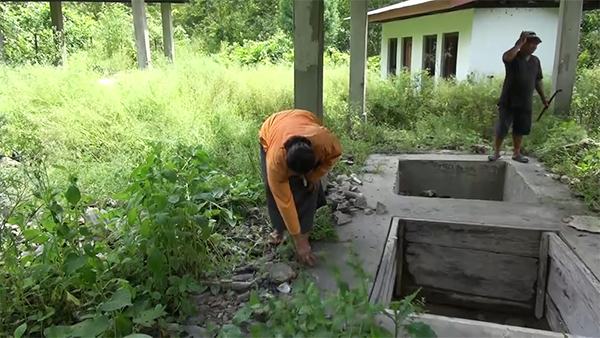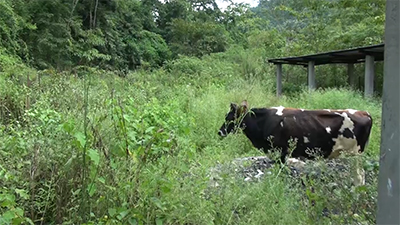 Natural springs or menchhus are quite popular in the country. Many people visit menchhus as it is believed to cure various diseases. In a few places, it has given people an opportunity to make earnings from its management. But in some, with no one to manage the hot spring, it has attracted bushes and hedges instead of visitors. And one such is Uri Menchu under Shumar Gewog in Pema Gatshel. The menchhu is more than a decade old.
Natural springs or menchhus are quite popular in the country. Many people visit menchhus as it is believed to cure various diseases. In a few places, it has given people an opportunity to make earnings from its management. But in some, with no one to manage the hot spring, it has attracted bushes and hedges instead of visitors. And one such is Uri Menchu under Shumar Gewog in Pema Gatshel. The menchhu is more than a decade old.
 Today, the menchhu has become a grazing place for cattle. People say it has been difficult to manage the hot spring as it involves a lot of work. With no one to take care of the hot spring, visitors usually bring in their own woods.
Today, the menchhu has become a grazing place for cattle. People say it has been difficult to manage the hot spring as it involves a lot of work. With no one to take care of the hot spring, visitors usually bring in their own woods.
“The main difficulty is getting woods and stones for the hot spring. And this is the main reason for people not visiting the hot spring. The hot spring is located near our village. I feel that if we collectively work and collect woods and stones for the hot spring, people will visit,” said Namkhar Dorji.
“For us to properly manage the hot spring, we need a truck because in smaller vehicles it would be impossible for us to load woods and stones. Last year, we had to buy woods from the Denchi Dzong construction,” said Dechen Wangdi.
However, the people of Maan village where the hot spring is located are planning to form a group and manage the hot spring. The hot spring is believed to cure skin diseases, headaches and UTI among others.
“I feel that it would be best if we manage the hot spring. To date, we haven’t been able to voice this out. Henceforth, we are thinking of collectively managing the hot spring for the visitor’s convenience,” said Tashi Jamtsho, a resident of Maan village.
“It will take a lot of work to collect woods and stones for the hot spring. That’s why we are thinking of charging a minimal fee to the visitors. We are planning to provide the best service even if it’s just three visitors visiting the hot spring,” said Karma Jamtsho, another resident.
The Gewog supported the move. Shumar Gup, Sangay Chophel said the gewog administration was not able to plan any developmental activities for the hot spring as there was no one to take care of its management in the past.
“If people are willing to form a group and take care of the hot spring’s management, we are ready to support them. If they are enthusiastic about managing the hot spring, the gewog will make sure that it is put in the planning processes and is given budgetary support,” he added.
Today, the hot spring has two bathtubs, a toilet and a resting place. According to the Gewog administration, the office is ready to provide all the necessary support.
With this collective effort, people feel that Uri menchu’s popularity will once again flourish.
Thinley Dorji, Pema Gatshel
Edited by Sonam Pem








